THE OXFORD SHAKESPEAREGeneral Editor Stanley WellsTHE OXFORD SHAKESPEARE
The History of King Lear
EDITED BY STANLEY WELLSON THE BASIS OF A TEXT PREPARED BY GARY TAYLOR

Great Clarendon Street, Oxford OX26 DP
Oxford University Press is a department of the University of Oxford.
It furthers the Universitys objective of excellence in research, scholarship,
and education by publishing worldwide in Oxford New York Athens Auckland Bangkok Bogot Buenos Aires Calcutta
Cape Town Chennai Dar es Salaam Delhi Florence Hong Kong Istanbul
Karachi Kuala Lumpur Madrid Melbourne Mexico City Mumbai
Nairobi Paris So Paulo Singapore Taipei Tokyo Toronto Warsaw and associated companies in Berlin Ibadan Oxford is a registered trade mark of Oxford University Press
in the UK and certain other countries Published in the United States
by Oxford University Press Inc., New York Stanley Wells 2000 The moral rights of the author have been asserted
Database right Oxford University Press (maker) First published 2000 All rights reserved. No part of this publication may be reproduced,
stored in a retrieval system, or transmitted, in any form or by any means,
without the prior permission in writing of Oxford University Press,
or as expressly permitted by law, or under terms agreed with the appropriate
reprographics rights organizations. Enquiries concerning reproduction
outside the scope of the above should be sent to the Rights Department,
Oxford University Press, at the address above You must not circulate this book in any other binding or cover
and you must impose the same condition on any acquirer British Library Cataloguing in Publication Data
Data available Library of Congress Cataloging in Publication Data Shakespeare, William, 15641616.
[King Lear]
The history of King Lear / edited by Stanley Wells on the basis of a text prepared by
Gary Taylor.
p. cm.(The Oxford Shakespeare)
Includes bibliographical references and index.
1. Lear, King (Legendary character)Drama. I.
Wells, Stanley W., 1930
II. Taylor, Gary, 1953III. Title.
PR2819.A2 W47 2000 822.33dc21 00034005 ISBN 0198182902 1 3 5 7 9 10 8 6 4 2 Typeset by Jayvee, Trivandrum, India
Printed in Great Britain
on acid-free paper by
Biddles Ltd.,
Guildford and Kings Lynn
PREFACE
ANY Shakespeare editor must incur immense debts to generations of predecessors. In working on
King Lear I have been fortunate to be able to draw on a long and distinguished editorial and scholarly tradition extending back beyond Nicholas Rowe to Heminges and Condell or their assignees who worked on the First Folio, and to the anonymous but intelligent workmen who tried to make sense of the first Quarto in preparing copy for the reprint of 1619. Above all I have had the advantage and stimulus of being able to consult excellent recent, fully annotated editions by three good friends, the late Kenneth Muir, Jay Halio, and R. Foakes. Foakes.
I have done what I can to make my edition complement rather than rival theirs. My text is heavily indebted to that prepared, with my collaboration, by Gary Taylor for the Oxford Complete Works of 1986, but I have rethought a number of its readings. A General Editor contributing to his own series is rather in the position of an actor who directs himself in a leading role. For the kind of direction that I should normally hope to provide to a member of my company I am especially indebted to Roger Warren, Robert Smallwood, John Jowett, and M. J. Kidnie, each of whom has offered helpful criticism of substantial stretches of my performance.
Among other scholars who have been generous in sharing their expertise I should mention Jeremy Barlow, J. M. Binns, Anthony Burton, Paul Edmondson, Melvin Earles, Richard Knowles, Joan Lane, the late Peggy Munoz Simons, Steve Sohmer, Marvin Spevack, and Martin Wiggins. I have benefited greatly from the willing assistance of library staff at the Shakespeare Centre and the Shakespeare Institute, and am especially grateful to Sylvia Morris at the former and James Shaw at the latter. Kate Welch has compiled the index. Jessica Wells helped with a tedious piece of keyboarding, and Clemency Wells advised on a point of horsemanship.
In putting the edition through the press I have been fortunate once again to have Christine Buckley as a scrupulous copy editor. At Oxford University Press Frances Whistler has been an unfailing and immensely generous source of wise advice and practical help. Stanley Wells
The Shakespeare Birthplace Trust
Stratford-upon-Avon
July 2000
CONTENTS
LIST OF ILLUSTRATIONS
(By permission of the Huntington Library) (Reproduced by courtesy of the Director and University Librarian, the John Rylands University Library of Manchester) (By permission of the Folger Shakespeare Library) (Shakespeare Centre, Stratford-upon-Avon: photograph by Joe Cocks) (Shakespeare Centre, Stratford-upon-Avon: photograph by Joe Cocks) (Shakespeare Centre, Stratford-upon-Avon: photograph by John Bunting) (By permission of the Folger Shakespeare Library) (By permission of Kendal Town Council, Kendal, Cumbria) (National Gallery of Scotland) (National Gallery of Scotland) (Shakespeare Centre, Stratford-upon-Avon: McBean Collection) (By permission of the Huntington Library)
INTRODUCTION
ONCE upon a time, probably in 1605, a man called William Shakespeare, using a quill pen, wrote a play about the legendary British King Lear and his three daughters. How often he drafted and redrafted his script we do not know; the version that reached print in 1608, and which seems to have been his first completed manuscript of the play, contains some 25,000 words. Shakespeares penning of these words has had consequences that he cannot have foreseen. It has resulted in countless theatrical performances, many of them in languages that he cannot have known and in countries of which he can have had no inkling.
It has enhancedand occasionally diminishedthe reputations of innumerable actors. It has stimulated other writersplaywrights, novelists, poets, essayiststo produce an enormous body of work. It has generated a multiplicity of works by artists in other mediavisual art, A. C. Bradley took up the theme, writing that when he thinks of the play as the fullest revelation of Shakespeares power he finds he is grouping it with works like the Prometheus Vinctus [by Aeschylus] and the Divine Comedy [by Dante], and even with the greatest symphonies of Beethoven and the statues [by Michelangelo] in the Medici Chapel (p. 244).
Such praise of the text as a work of literature has not always been matched by equal admiration of its qualities as an actable drama. Charles Lamb, complaining that, in the theatres of his time, the Lear of Shakespeare cannot be acted, wrote The contemptible machinery by which they mimic the storm which he goes out in, is not more inadequate to represent the horrors of the real elements, than any actor can be to represent Lear: they might more easily propose to personate the Satan of Milton upon a stage, or one of Michael Angelos terrible figures.texts of the past rather than adapting them to suit itself, complaints that the play is unactable have receded, and King Lear has come to be seen as the height of its authors achievement as a dramatist as well as a poet: a poetic drama whose poetry can be fully apprehended only through performance. Performance has also humanized it, so that it seems equally great but less formidable than some earlier accounts might suggest, a colossus of a play still, but one that is shot through with irony and tenderness, a play that may arouse laughter as well as terror, tears as well as awe. This volume offers an edited text of the play based on its first printing, explanatory notes printed below the text, and an introductory essay sketching the plays genesis, reception, and influence. It is necessary first to say something about what happened to the text after Shakespeare originally wrote it in order to explain how this edition differs from others. (A more technical discussion of the text is offered on pages 8193.)
Next page


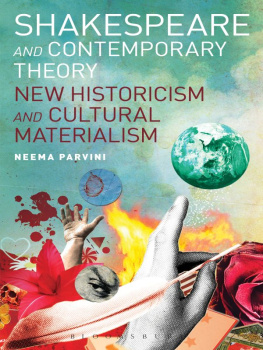


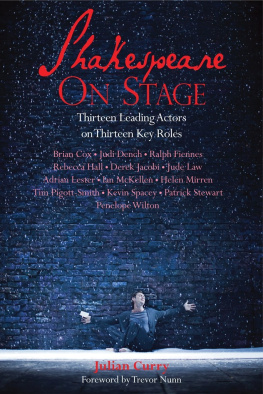
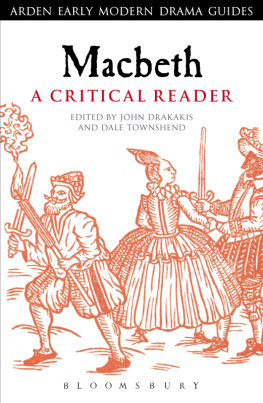
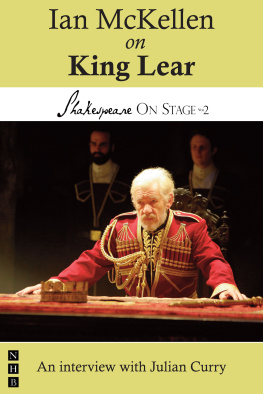

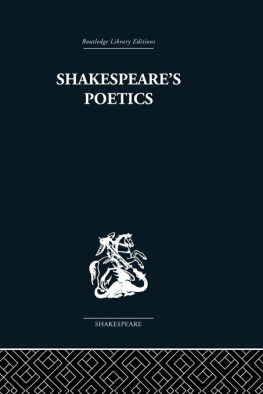
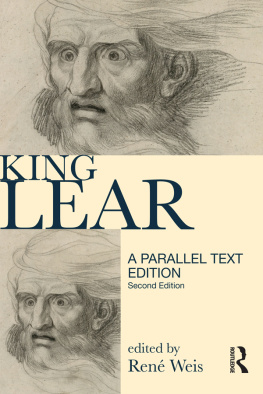
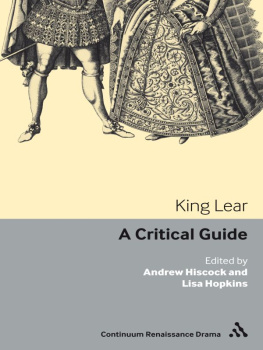
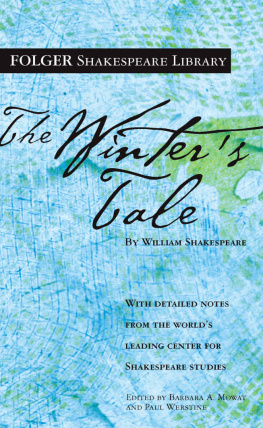

 Great Clarendon Street, Oxford OX26 DP
Great Clarendon Street, Oxford OX26 DP